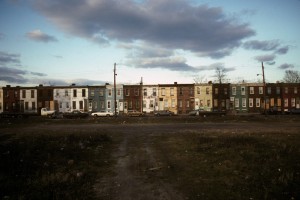The Inquirer’s Claudia Vargas has published today a wrenching tale of the continued struggle to make do in Camden, now almost universally referred to in the press both as the nation’s poorest and most dangerous city. The essay attracted the usual negativism from Internet boobirds blaming either the poor for their own predicament or the Democratic political machine for not providing solutions the GOP would presumably offer if they were able to marshal any power in the city.
What’s missing in the article as well as the commentary is any basic sense of context. Rutgers Professor Paul Jargowsky may be right at one level in concluding that people who don’t leave are those who can’t afford to do so. Partly right, in that one reason people don’t leave is that they call Camden home and continue to work assiduously to build community institutions in the face of terrible odds. Rehabilitations, neighborhood watches, and afterschool programs all continue, many of them models of caring and efficiency.
But a city in Camden’s condition can’t pull itself up out of the hole it has fallen into.
There simply is too much concentrated poverty. Instead of assuming people will leave if they can, we should be asking why they don’t leave if they want to. The answer is pretty simple: lack of affordable housing in the region. If people are forced to stay in Camden, it’s most often because that is where they find the most affordable place to live. If they move out, someone else who needs those accommodations moves in, and the situation stays the same. Homes are affordable because the living conditions are undesirable. The slow pace of renovation and rehabilitation will improve some neighborhoods, like East Camden, over time. But overall, unless Camden becomes a magnet for investment and/or the suburbs open up, Camden’s concentrated poverty will continue and all the social pathology that comes with it will remain.
There are many things that can be done to improve lives in Camden in the short term. But if we use the state takeover from 2002-2009 as a baseline, it is clear that whatever promise that effort offered, it has not been built upon, with the possible exception of the eds and meds. They remain, however, islands in a sea of poverty, and that is not enough to turn a city around.
